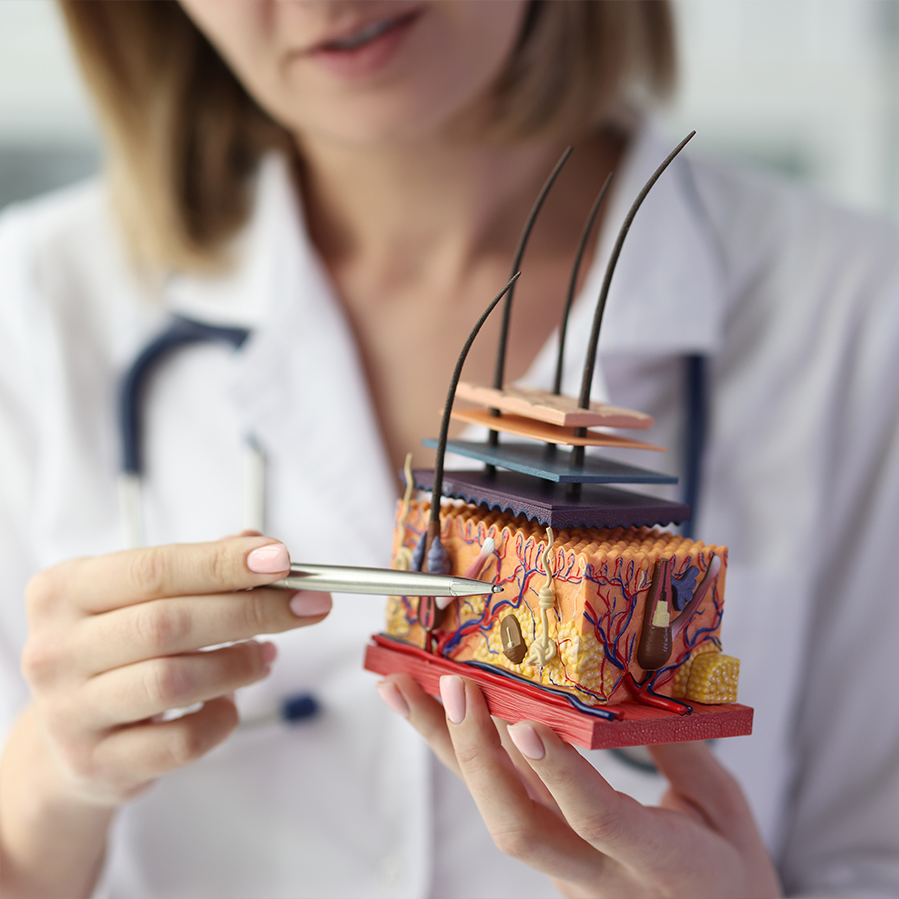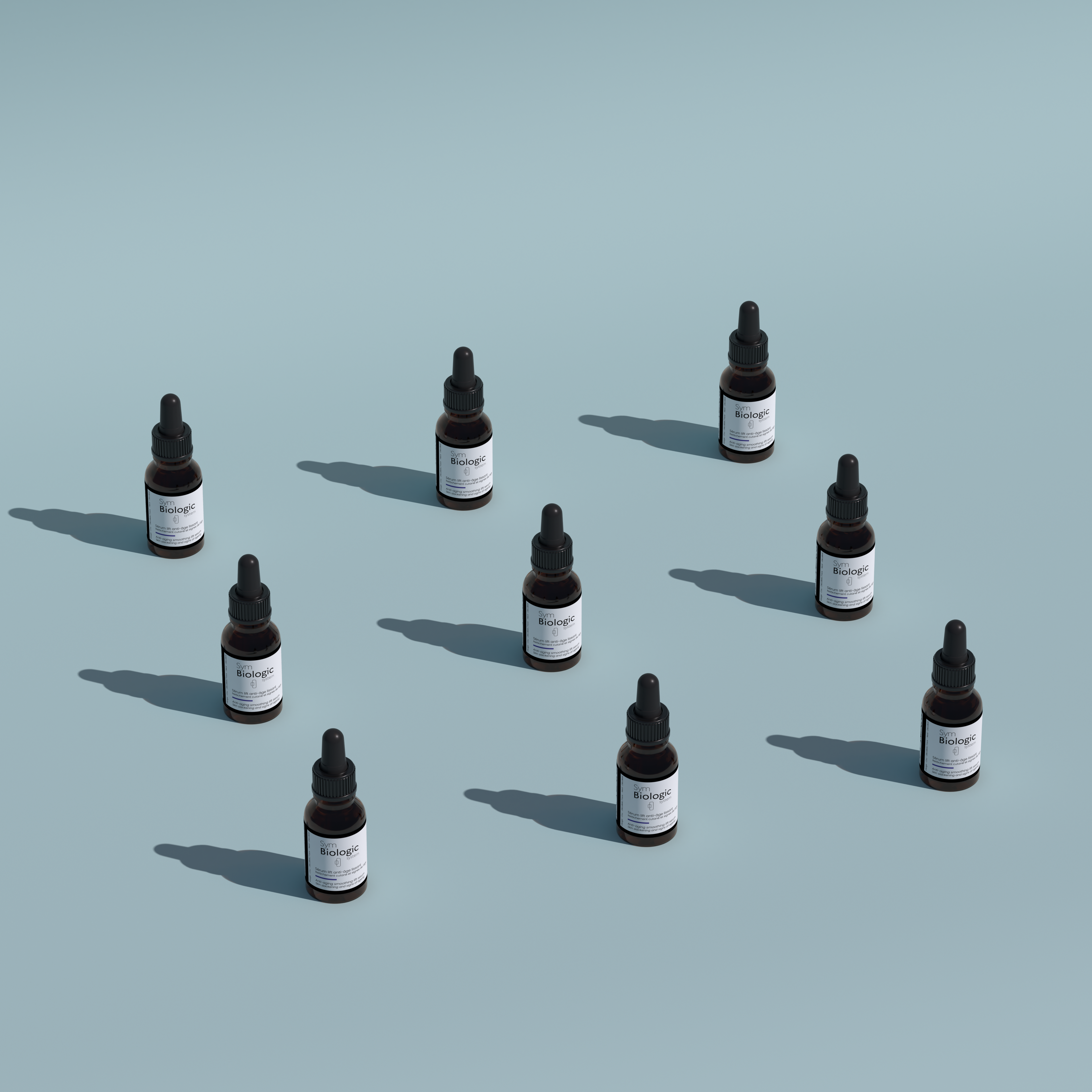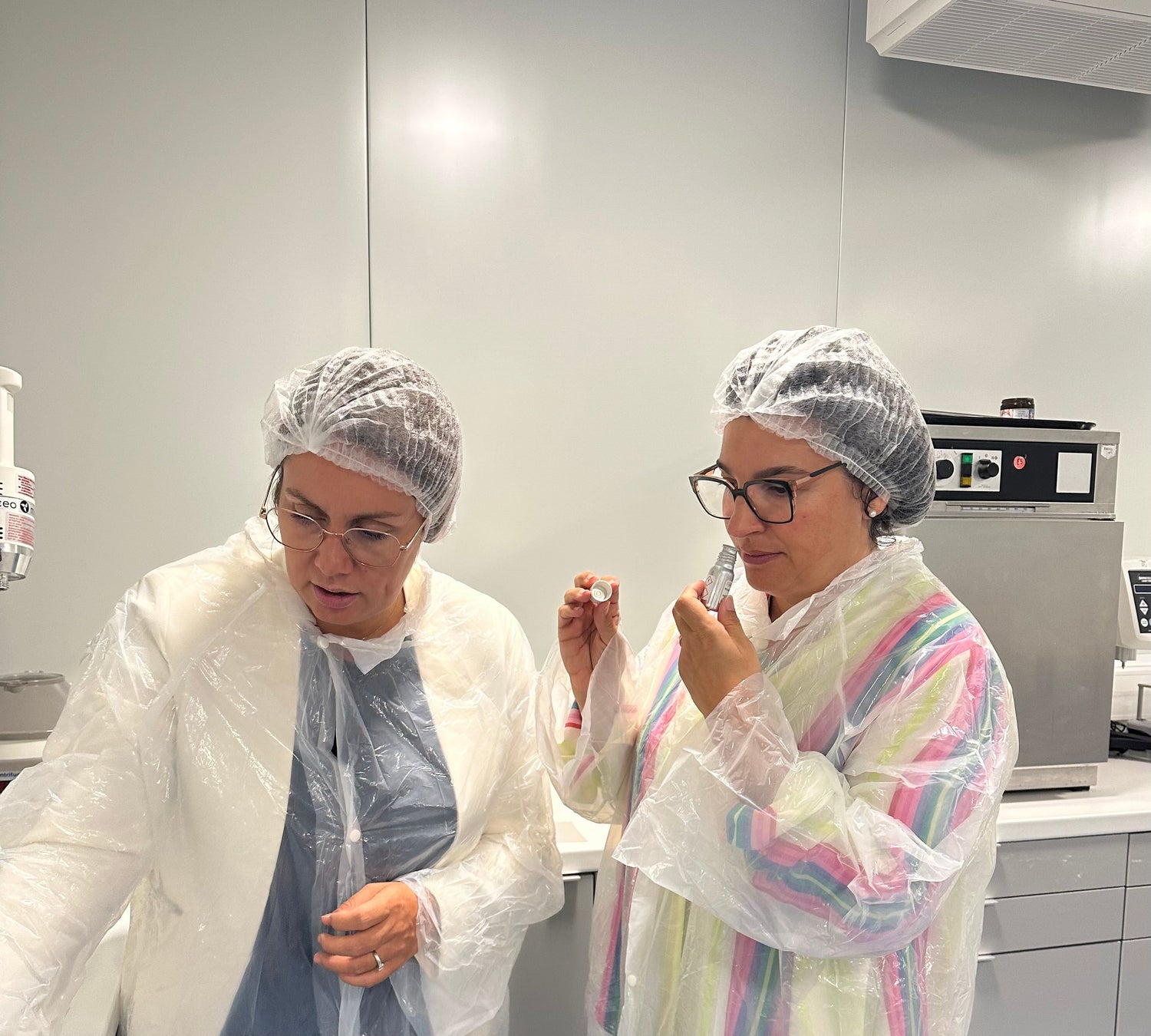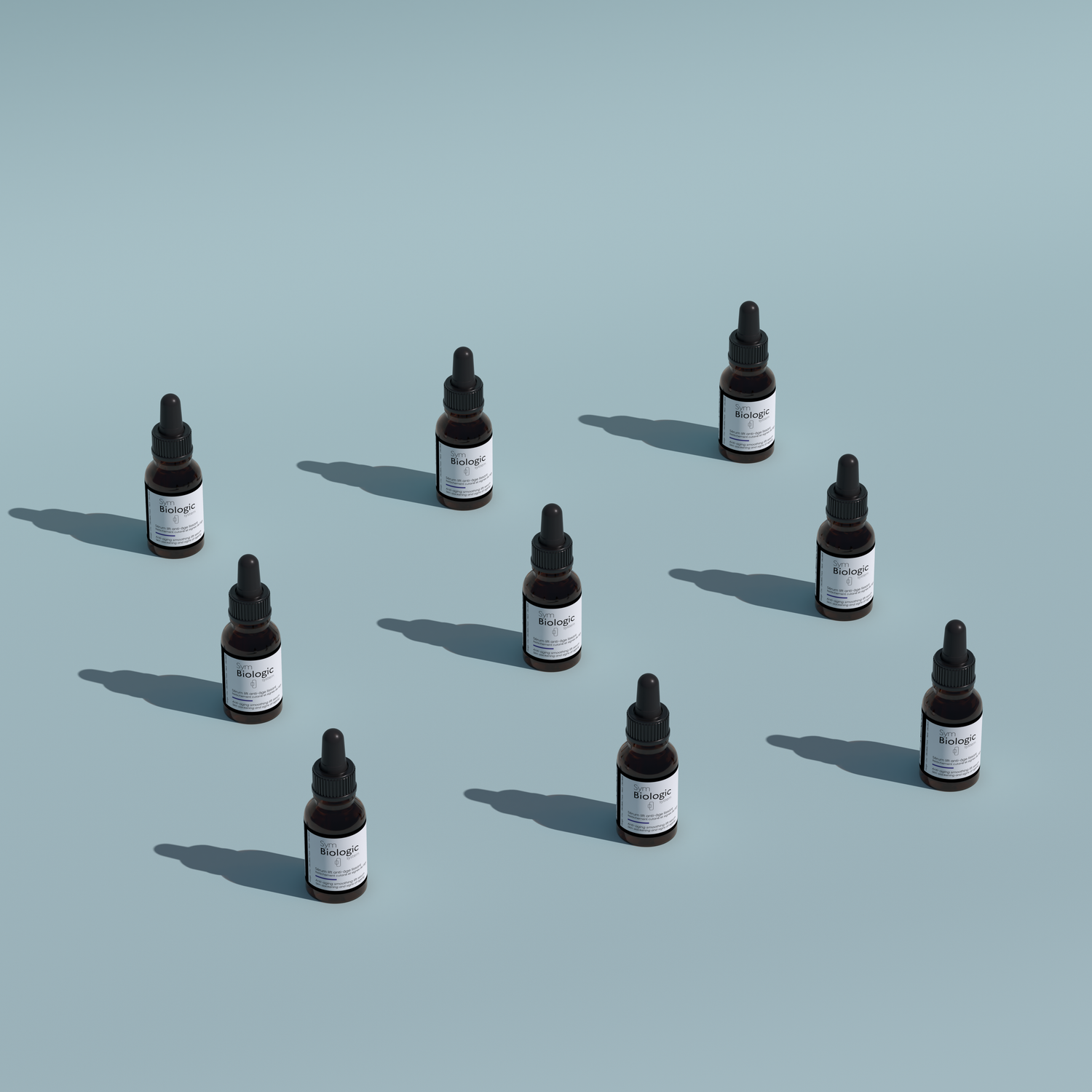Hello Explorers,
Today, we're going to explore what science and dermatology have taught us about the complex workings of the skin. Understanding these principles is crucial to adopting good skin care practices and maintaining healthy skin.
1. The Importance of Hydration and the Cutaneous Barrier
Modern dermatology emphasizes the vital importance of hydration for skin health. However, hydration goes far beyond the simple application of water, moisturizers and serums. It's about the skin's ability to retain internal water, which is essential for its barrier function and overall health.
- Transepidermal Water Loss: The skin acts as a barrier to limit transepidermal water loss (TEWL). A strong, healthy skin barrier prevents excessive water evaporation, keeping skin hydrated and supple.
- Maintaining moisture balance: healthy skin regulates its hydration by producing natural oils and retaining water in the deep layers of the epidermis.
2. Mechanical Stimulation and Production of Essential Components
Dermatology has also demonstrated that mechanical stimulation of the skin is crucial for activating fibroblasts, the cells responsible for producing the skin's essential elements.
- Fibroblasts and Mechanical Stimulation: Fibroblasts are stimulated by mechanical activities such as massage, gentle exfoliation, or even facial expressions. This stimulation encourages fibroblasts to produce hyaluronic acid, elastin and collagen.
- Hyaluronic acid, elastin and collagen: These components are fundamental to skin structure, elasticity and hydration. Hyaluronic acid retains water, while collagen and elastin provide firmness and suppleness.
3. Care practices based on these principles
To care for our skin effectively and scientifically, we must :
- Moisturize and protect the skin barrier: Using products that strengthen the skin barrier and prevent TEWL is essential. Choose moisturizers that contain ingredients such as ceramides and fatty acids.
- Stimulate Skin Mechanically: Incorporate practices such as facial massages, the use of jade or gua sha rollers, and gentle exfoliations to stimulate fibroblasts.
- Provide Necessary Nutrients: A balanced diet, rich in vitamins and antioxidants, supports the production of collagen, elastin and hyaluronic acid.
Conclusion
Dermatology has given us a valuable understanding of how the skin works, enabling us to take better care of it. By following these scientifically proven principles, we can keep our skin hydrated, elastic and healthy.
By taking good care of your skin, you're taking good care of yourself.







